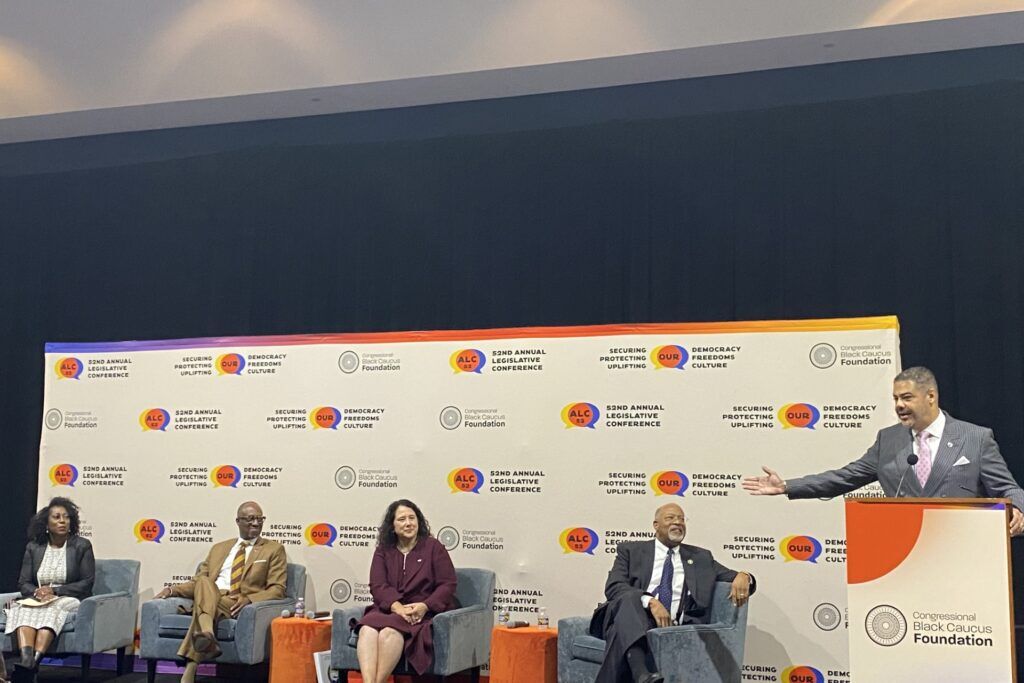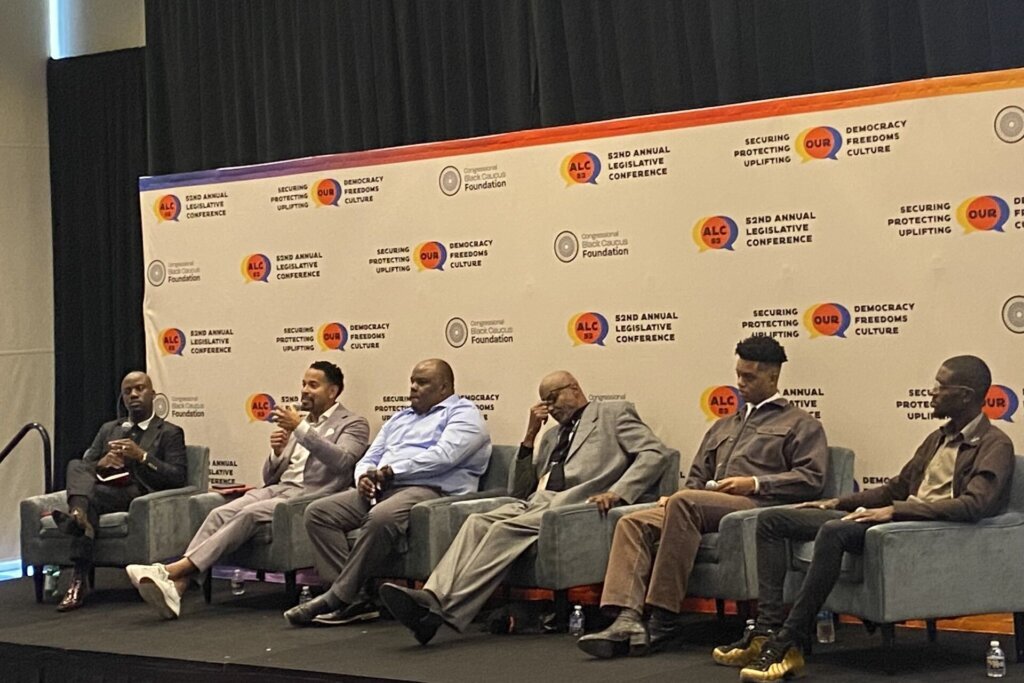This article was republished with permission from WTOP’s news partners at Maryland Matters. Sign up for Maryland Matters’ free email subscription today.

This content was republished with permission from WTOP’s news partners at Maryland Matters. Sign up for Maryland Matters’ free email subscription today.
Maryland politicians were among the thousands who headed to Washington, D.C. this week for the Congressional Black Caucus Foundation’s 52nd legislative conference.
Rep. Glenn Ivey (D-4th) hosted a panel discussion on how this summer’s U.S. Supreme Court decision on affirmative action could effect Black-owned businesses.
Montgomery County Councilmember Will Jawando (D) served as a panelist with a focus on how to showcase “Black boy and men joy,” even though they continue to face higher rates of incarceration, health disparities and learning loss in the classroom.
Although Jawando isn’t a member of Congress, he’s attended several conferences as an intern on Capitol Hill and while working as an aide with then-Sen. Barack Obama.
“This is always a really important time of year where we come together [alongside] people who are practicing policy, forming it, writing about it and talking about how they can improve the quality of life of Black people, which is going to improve the quality of life in America,” he said in a brief interview about five minutes before his panel session. “Some of the best ideas that are used at the local, state and federal level come out of the CBC conference.”
Jawando is currently seeking the Democratic nomination for U.S. Senate to replace longtime Sen. Ben Cardin (D). He joined five other Black men that included Jabari Banks, an actor in the Peacock series “Bel-Air,” a reboot of “The Fresh Prince of Bel-Air” sitcom that starred Will Smith.

The panel was part of the Black Caucus Foundation’s national race equity initiative with a focus on improving the lives of Black boys.
One policy Jawando said county and state officials should fund is training, hiring and retaining Black male teachers.
According to the National Teacher and Principal Survey, about 6% of public schoolteachers in the 2020-2021 school year were Black. Less than 2% were Black men.
“In my entire matriculation from prekindergarten through law school, I had one Black male teacher,” Jawando said. “We need to be increasing the number of Black male teachers.”
Affirmative action and business
Ivey, who took office eight months ago, is one of 58 members of the Congressional Black Caucus in the 118th Congress.
He hosted a panel discussion Friday morning titled “Black Businesses: The Fight to Save Black Businesses from Attacks in the Courts.”
In June, the U.S. Supreme Court struck down use of affirmative action in college admissions. Some businesses are now being targeted and encouraged not to hire employees based on race or ethnicity.
One of the main themes stated Friday: diversity, equity and inclusion, also labeled as DEI, policies are “under attack” by some federal, state and local lawmakers and private companies.
“This may be one of the biggest moments that minority businesses face in the history of the United States. Now is the time for us to stand up and be heard on this,” Ivey said.
He said business leaders and consumers should urge state attorneys general to affirm that DEI policies are vital to a company’s success.
However, it will depend on where a person lives.
A few weeks after the Supreme Court decision, 13 Republican state attorneys general wrote a letter to the CEOs of the biggest 100 companies in the nation “to remind you of your obligations as an employer under federal and state law to refrain from discriminating on the basis of race, whether under the label of ‘diversity, equity, and inclusion’ or otherwise.”
Less than a week later, 20 Democratic attorneys general, including Maryland Attorney General Anthony Brown, wrote to those same companies. They said the Republican letter had a “tone of intimidation.”
“As the chief legal officers of our states, we recognize the many benefits of a diverse population, business community, and workforce, and share a commitment to expanding opportunity for all,” the Democratic officials wrote. “We applaud the Fortune 100 for your collective efforts to address historic inequities, increase workplace diversity, and create inclusive environments.”
Adrienne Trimble, vice president and chief diversity officer of Sysco Corp. who served on the panel, said another voice is missing.
“Some of these CEOs are getting cold feet. They are afraid to say or do the wrong thing,” she said. “Some of their positions is always to keep both sides of the aisle satisfied. You have to pick a side and I’m hoping the side they will be on is making sure that we remain committed to diversity, equity and inclusion because it is better for business.”







